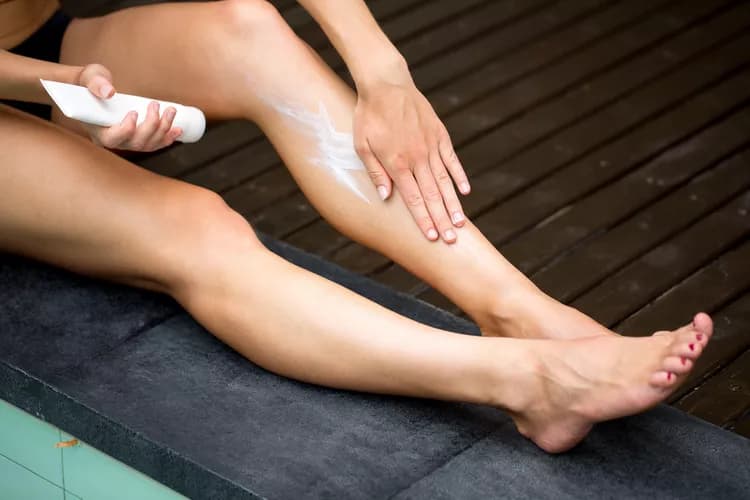
Summer Is Here: How To Identify The Most Effective Sunscreen For Your Skin
The American Cancer Society estimates that one in five Americans will be diagnosed with skin cancer at some stage in their lives, which represents a harsher upsurge of the incidence of skin cancer than in the past. It is estimated that in approximately 90 percent of skin cancer cases, the risk is directly associated with the amount and intensity of sun exposure from UV sunlight. When using the proper sun protection and limiting exposure, it is simple to decrease the risk of developing skin cancer. Appropriate protection from the UV rays is an essential portion of the equation, but finding the proper kind of sunscreen for your skin can be difficult.
Before purchasing sunscreen, it is vital to inspect the ingredient list on the label of the bottle. There are numerous chemicals that are used in sunscreens that serve to protect your skin in different ways, but not all of these ingredients may be appropriate for your skin. There are 17 chemicals currently on the market in the United States that are approved by the Food and Drug Administration (FDA) for use in sunscreens. These chemicals, such as PABA (para-aminobenzoic acid) and cinnamates, protect the skin by absorbing the sun’s rays and converting the radiation into heat energy. Some physical sunscreens, such as zinc oxide or titanium dioxide, refract and scatter the light from UV rays to prevent them from penetrating the skin.
Both of these methods of sun protection have been shown to be safe and effective when used properly. However, it is imperative to be aware of which type of sunscreen is best for your unique skin type, as some of these chemicals may be harmful for the skin. The Skin Cancer Foundation has several recommendations for the use of SPF:
- SPF, or sun protection factor, is the number that indicates the type of sun exposure you will have. The higher the SPF number, the higher the percentage of harmful UV rays blocked from penetrating the skin
- “Broad Spectrum Protection” is key: “Broad Spectrum Protection” are words that you must look for on the labeling of the sunscreen bottle. These words indicated that the product will effectively protect the skin against a significant protion of both UVA (Ultraviolet A) and UVB (Ultraviolet B) rays and will contain multiple active ingredients
- SPF 15: A sun protection factor of 15 indicates use for incidental sun exposure such as being outside for just a few minutes at a time. A sunscreen of SPF 15 will filter out about 93% of UV radiation
- SPF 30: A sun protection factor of 30 or higher should be used for intense or extended exposure to UV radiation. When outdoors for extended periods of time, the sunscreen should be broad-spectrum and be sweat- and water-resistant so that it remains on the skin. A sunscreen of SPF 30 will filter out approximately 97% of UV rays
- SPF 50 or higher: SPF 50 or higher should be used for all day exposure to the sun, as it will filter out about 98% of UV rays
- Skin Reactions in Children: A review at the University of Minnesota in 2006 suggested that some chemicals, including PABA or oxybenzone, have been correlated with irritation and reactions in the sensitive skin of children. The physical sunscreens tend to be well tolerated in children and include zinc oxide and titanium dioxide. The two ingredients are often found in sunscreen intended for children or babies
- Problem Skin: Certain skin conditions, such as allergies, acne, or rosacea, have been shown to be sensitive to certain chemicals in sunscreens. A review completed in India in 2012 demonstrated that use of certain products that contain fragrances, preservatives, PABA, or oxybenzone in those who have these skin conditions that are likely to result in skin reactions. Acne patients are advised to stay away from creams and greasy products and to try gel formulas, as they contain alcohol that dries the skin and prevents acne flare-ups. Individuals with rosacea or allergy prone skin should avoid products formulated with alcohol and try sunscreens that contain salicylates, ecamsule, or physical sunscreens
- Fair skin or skin cancer history: Individuals with any of these skin concerns should use a sunscreen that contains at least SPF 30 protection and apply it at least every 2 hours or directly after swimming or extreme sweating
With the summer season approaching, it is essential to scan the skincare aisle for the most effective sunscreen for your skin. It is important to remember to first scan the ingredient list on the product label, while also considering the intended length and type of sun exposure to accurately decide on the appropriate SPF number. Look for key words such as “waterproof”, “water-resistant”, “sweat-proof”, or “broad spectrum protection.” When you purchase a sunscreen that contains the optimum protection ingredients, you will actively protect your skin from the harmful rays that can cause wrinkles, burns, signs of aging, and skin cancer. Having knowledge on this essential product can leave you feeling confident about the sunscreen you use.
References:
Saini R, Szemplinski A. How to Choose the Right Sunscreen for Your Skin Type [Internet]. Skin Cancer Foundation [cited 2015 Jan 20]. Available from: http://www.skincancer.org/prevention/sun-protection/sunscreen/choosing
Cancer Facts and Figures 2013 [Internet]. American Cancer Society; 2013 [cited 2015 Jan 20]. Available from: http://www.cancer.org/acs/groups/content/@epidemiologysurveilance/documents/document/acspc-036845.pdf
Scheuer E, Warshaw E. Sunscreen Allergy: A Review of Epidemiology, Clinical Characterisitics, and Responsible Allergens. Dermatitis. 2006;17(1):3-11.
Rai R, Shanmuga SC, Srinivas CR. Update on Photoprotection. Indian J Dermatol. 2012;57(5):335-342.
Related Articles
Test Your Knowledge
Asked by users
Related Centers
Related Specialties
Related Physicians
Related Procedures
Related Resources
Join DoveHubs
and connect with fellow professionals

0 Comments
Please log in to post a comment.